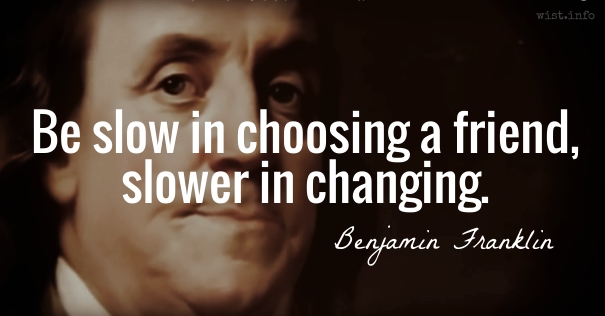And lead weights to your feet may my words be,
that you move slowly, like a weary man,
to the ‘yes’ and ‘no’ of what you do not see.
For he is a fool, and low among his kind,
who answers yea or nay without reflection,
nor does it matter on which road he runs blind.
Opinions too soon formed often deflect
man’s thinking from the truth into gross error,
in which his pride then binds his intellect.
[E questo ti sia sempre piombo a’ piedi,
per farti mover lento com’ uom lasso
e al sì e al no che tu non vedi:
ché quelli è tra li stolti bene a basso,
che sanza distinzione afferma e nega
ne l’un così come ne l’altro passo;
perch’ elli ’ncontra che più volte piega
l’oppinïon corrente in falsa parte,
e poi l’affetto l’intelletto lega.]Dante Alighieri (1265-1321) Italian poet
The Divine Comedy [Divina Commedia], Book 3 “Paradiso,” Canto 13, l. 112ff (13.112-121) [Thomas Aquinas] (1320) [tr. Ciardi (1970)]
(Source)
(Source (Italian)). Alternate translations:Now learn, my Son,
With tardy foot to make your Judgment run,:
And Fancy's wild excursions to repel
Unhappy they, who, by her lure betray'd.
And, like 'lorn travellers, by meteors led.
Their affirmation or denial give
Unweigh'd, for Fancy leans to Falsehood's part,
And soon to Passion's rule betrays the heart.
And her embruted Slaves in bondage live.
[tr. Boyd (1802), st. 19-20]And let this
Henceforth be led unto thy feet, to make
Thee slow in motion, as a weary man,
Both to the ‘yea’ and to the ‘nay’ thou seest not.
For he among the fools is down full low,
Whose affirmation, or denial, is
Without distinction, in each case alike
Since it befalls, that in most instances
Current opinion leads to false: and then
Affection bends the judgment to her ply.
[tr. Cary (1814)]Let this henceforth be lead unto thy feet,
To make thee move slow, like a weary man,
Both to the Yea and Nay, as far 's you can:
For he among the fools is low enough,
Without distinction, who affirms, denies,
Where one and where the other question lies.
It happens, too, that oftentimes incline
Opinions current to the falser side,
And intellect is by affection tied.
[tr. Bannerman (1850)]And lead shall this be always to thy feet,
To make thee, like a weary man, move slowly
Both to the Yes and No thou seest not;
For very low among the fools is he
Who affirms without distinction, or denies,
As well in one as in the other case;
Because it happens that full often bends
Current opinion in the false direction,
And then the feelings bind the intellect.
[tr. Longfellow (1867)]And let this be always as lead to thy feet, to make thee move slow as a weary man both to the yes and to the no that thou seest not; for he is very low down among the fools who affirms or denies without distinction, in the one no less than in the other pass: since it occurs that oftentimes the current opinion swerves in a false direction, and afterwards the desire binds the understanding.
[tr. Butler (1885)]And let this to thy feet a dead weight be,
Like one fatigued to make thee journey slow
Towards the Yes, or No, thou dost not see.
For he amongst the fools is very low,
Who without thought affirmeth, or denies,
Whether to one or other step he go;
Because it happens that too often flies
Public opinion into error's part.
And then its influence the intellect ties.
[tr. Minchin (1885)]And let this be ever as lead to thy feet, to make thee move slow as a weary man, both to the YES and to the NO which thou seest not; for he is very low among the fools who affirms or denies without distinction, alike in the one and in the other case: because it happens, that oftentimes the current opinion bends in false direction, and then the inclination binds the understanding.
[tr. Norton (1892)]And let this ever be lead to thy feet, to make The thee move slow, like a weary man ; both to the yea and nay thou seest not;
for he is right low down amongst the fools who maketh affirmation or negation without distinction between case and case;
wherefore it chanceth many times swift-formed rash opinion leaneth the wrong way, and then con-ceit bindeth the intellect.
[tr. Wicksteed (1899)]And let this always be lead on thy feet to make thee slow, like a weary man, in moving either to the yea or the nay where thou dost not see clearly; for he ranks very low among the fools, in the one case as in the other, who affirms or denies without distinguishing, since it often happens that a hasty opinion inclines to the wrong side and then the feelings bind the intellect.
[tr. Sinclair (1939)]Ever let this, like lead, thy feed down-weigh
To make thee, where thou see'st not clear, move slow,
Like one who is weary, both to Yea and Nay.
For he among the foolish stands right low
Who affirms without distinction or denies
With whichsoever case he hast o do;
Since often it haps that rashness of surmise
Leadeth the judgment on false roads to start;
Then fond desire the understanding ties.
[tr. Binyon (1943)]And to thy feet be this hobble, wrought
Of lead, to make thee move at sluggard pace
Toward Yea and Nay where thou perceivest naught,
For low among the dunces is his place
Who hastes to accept or reject
With no distinction made 'twixt case and case;
Thence come rash judgements, mostly incorrect
And prejudiced, and stubborn all the more
That self-conceit shackles the intellect.
[tr. Sayers/Reynolds (1962)]And let this ever be as lead to your feet, to make you slow, like a weary man, in moving either to the yes or the no which you see not; for he is right low down among the fools, alike in the one asnd in the other case, who affirms or denies without distinguishing; because it happens that oftentimes hasty opinion inclines to the wrong side, and then fondness for it binds the intellect.
[tr. Singleton (1975)]And let this always make your feet like lead
So that you move like a man who is worn out
Towards a Yes or No you cannot actually see:
For a man is right down among the fools
In the case either of affirmation or denial,
If he proceeds without making distinctions;
Because it often happens that a quick opinion
Inclines int he wrong direction, and after that
The intellect is hampered by vanity.
[tr. Sisson (1981)]And let this weigh as lead to slow your steps,
to make you move as would a weary man
to yes or no when you do not see clearly:
whether he would affirm or would deny,
he who decides without distinguishing
must be among the most obtuse of men;
opinion -- hasty -- often can incline
to the wrong side, and then affection for
one’s own opinion binds, confines the mind.
[tr. Mandelbaum (1984)]Let this be leaden weight upon your feet
to make you move slow as a weary man
both to the ‘yes’ or ‘no’ you do not see,
for he ranks low, indeed, among the fools,
who rushes to affirm or to deny,
no matter which, without distinguishing.
Opinions formed in haste will oftentimes
lead in a wrong direction, and man’s pride
then intervenes to bind his intellect.
[tr. Musa (1984)]And let this ever be lead upon your feet, to make you move slowly, like a weary man, to both the yes and the no that you do not see:
for surely he is low among the fools who affirms and denies without distinction in either case,
for it often happens that a hasty opinion turns in a wrong direction, and then affect binds the intellect.
[tr. Durling (2011)]And let this always weight your feet down with lead, and make you go slowly, like a tired man, approaching the yes or no you do not grasp, since he is truly down there among the fools, who affirms or denies without distinguishing between cases, so that it often happens that a quick opinion leans to the wrong side, and then Pride entangles the intellect.
[tr. Kline (2002)]And let this be a lead weight on your feet,
so that you move as slow as if worn out
to any “yes” or “no” unclear to you.
For no fool is as low a fool as one
who taking either of these steps will fail
affirming to denying in distinction.
So often when our judgement rushes on
it happens that we veer in false directions
and then emotions bind tie intellect.
[tr. Kirkpatrick (2007)]And let this always be as lead upon your feet
to make you slow, just like a weary man, in moving,
whether to yes or no, unless you see both clearly.
For he ranks low among the fools
who, without making clear distinctions,
affirms or denies in one case or another,
since it often happens that a hasty opinion
inclines one to the erring side, and then
fondness for it fetters the working of the mind.
[tr. Hollander/Hollander (2007)]And let this forever be like lead on your feet,
Forcing you to go slowly, like someone weary,
Saying 'yes' or 'no' when neither is clear.
A man who either concurs or disagrees
Without some plain distinctions is a fallen fool,
And pretty low even at that level,
For hasty judgment often bends to what's wrong,
And having made a foolish choice the fool
Holds on, letting his foolery tie up his mind.
[tr. Raffel (2010)]
Quotations about:
deliberation
Note not all quotations have been tagged, so Search may find additional quotes on this topic.
Self-control seldom leads astray.
[以約、失之者鮮矣。]
Confucius (c. 551- c. 479 BC) Chinese philosopher, sage, politician [孔夫子 (Kǒng Fūzǐ, K'ung Fu-tzu, K'ung Fu Tse), 孔子 (Kǒngzǐ, Chungni), 孔丘 (Kǒng Qiū, K'ung Ch'iu)]
The Analects [論語, 论语, Lúnyǔ], Book 4, verse 23 (4.23) (6th C. BC – AD 3rd C.) [tr. Leys (1997)]
(Source)
(Source (Chinese)). Alternate translations:The cautious seldom err.
[tr. Legge (1861)]Those who keep within restraints are seldom losers.
[tr. Jennings (1895)]He who wants little seldom goes wrong.
[tr. Ku Hung-Ming (1898); alternate: "He who confines his sphere ..."]The self-restrained seldom err.
[tr. Soothill (1910)]Self-restraint avoids error.
[tr. Soothill (1910), alternate]Those who have gone astray through self-restraint are few.
[tr. Soothill (1910), alternate]Those who consume their own smoke seldom get lost. The concise seldom err.
[tr. Pound (1933)]Those who err on the side of strictness are few indeed!
[tr. Waley (1938)]When strict with oneself one rarely fails.
[tr. Ware (1950)]It is rare for a man to miss the mark through holding on to essentials.
[tr. Lau (1979)]There are few indeed who fail in something through exercising restraint.
[tr. Dawson (1993)]Those who err through self-restraint are rare indeed.
[tr. Huang (1997)]The persons who lose because of restraining themselves, are few.
[tr. Cai/Yu (1998), #89]It is rare indeed for someone to go wrong due to personal restraint. [tr. Ames/Rosemont (1998)]Those who err on the side of strictness are few.
[tr. Brooks/Brooks (1998)]To lose by caution is rare indeed.
[tr. Hinton (1998)]Very few go astray who comport themselves with restraint.
[tr. Slingerland (2003)]Those who go wrong by holding back are few.
[tr. Watson (2007)]Few are those who make mistakes by knowing to hold back.
[tr. Annping Chin (2014)]If you practice self-control according to the rules of Li, you will make fewer mistakes.
[tr. Li (2020)]
The pretext for indecisiveness is commonly mature deliberation; but in reality indecisive men occupy themselves less in deliberation than others; for to him who fears to decide, deliberation (which has a foretaste of that fear) soon becomes intolerably irksome, and the mind escapes from the anxiety of it into alien themes.
Henry Taylor (1800-1886) English dramatist, poet, bureaucrat, man of letters
The Statesman: An Ironical Treatise on the Art of Succeeding, ch. 21 (1836)
(Source)
Be slow in chusing a Friend, slower in changing.
Benjamin Franklin (1706-1790) American statesman, scientist, philosopher, aphorist
Poor Richard (1735 ed.)
(Source)
FRIAR LAWRENCE: Wisely and slow. They stumble that run fast.
William Shakespeare (1564-1616) English dramatist and poet
Romeo and Juliet, Act 2, sc. 3, l. 101 (2.3.101) (c. 1594)
(Source)
All human errors are impatience, the premature breaking off of what is methodical, an apparent fencing in of the apparent thing.
[Alle menschlichen Fehler sind Ungeduld, ein vorzeitiges Abbrechen des Methodischen, ein scheinbares Einpfählen der scheinbaren Sache.]
Franz Kafka (1883-1924) Czech-Austrian Jewish writer
Notebook, Aphorism # 2 [tr. Kaiser and Wilkins]
(Source)
Alt. trans.: "All human errors are impatience, a premature breaking off of methodical procedure, an apparent fencing-in of what is apparently at issue."
Yet for a long time mortal men have discussed the question whether success in arms depends more on strength of body or excellence of mind; for before you begin, deliberation is necessary, when you have deliberated, prompt action. Thus each of these, being incomplete of itself, requires the other’s aid.
[Sed diu magnum inter mortalis certamen fuit vine corporis an virtute animi res militaris magis procederet. Nam et prius quam incipias, consulto, et ubi consulueris, mature facto opus est. Ita utrumque per se indigens alterum alterius auxilio eget.]
Sallust (c. 86-35 BC) Roman historian and politician [Gaius Sallustius Crispus]
Bellum Catilinae [The War of Catiline; The Conspiracy of Catiline], ch. 1, sent. 5-7 [tr. Rolfe (1931)]
(Source)
Original Latin. Alt. trans.:"But a just estimate of our mental and bodily faculties was not easily made. Which of them was most conducive to the success of military operations, was in former times a question much agitated, and long undecided. It is evident, however, that before the undertaking of a warlike enterprise, judgment is required to concert and plan the necessary measures; vigor in execution is equally necessary. The powers of man, in their separate functions feeble and ineffectual, demand each other's aid, and flourish by mutual assistance." [tr. Murphy (1807)]"It has, however, been a great and long debate, whether success in war is most owing to bodily strength or mental abilities: for, as counsel is necessary before we enter on action, after measures are duly concerted, speedy execution is equally necessary; so that neither of these being sufficient singly, they prevail only by the assistance of each other." [tr. Rose (1831)]"But there has been for a long time a great debate amongst mortals, whether the science of war advanced more by the strength of body or by the abilities of the mind. For both before you begin there is need of counsel; and when you have counselled, there is need of vigorous execution. So whilst both by themselves are defective, the one is strengthened by the assistance of the other." [Source (1841)]"Yet it was long a subject of dispute among mankind, whether military efforts were more advanced by strength of body, or by force of intellect. For, in affairs of war, it is necessary to plan before beginning to act, and, after planning, to act with promptitude and vigor. Thus, each being insufficient of itself, the one requires the assistance of the other." [tr. Watson (1867)]"Not it was long hotly contested among men whether military success was more advanced by mental ability or by bodily strength, for what we need is deliberation before we begin, and after deliberation, then well-timed action; either of itself is deficient and lacks the other's help." [tr. Pollard (1882)]"Yet for a long time there was considerable dispute amongst mortals as to whether it was through the power of the body or the prowess of the mind that military affairs made greater progress. For, before you begin, deliberation is necessary, and, when you have deliberated, speedy action: hence each element, deficient on its own, requires the help of the other." [tr. Woodman (2007)]
Remember this, my dear brothers: be quick to listen but slow to speak and slow to rouse your temper; God’s righteousness is never served by man’s anger.
The Bible (The New Testament) (AD 1st - 2nd C) Christian sacred scripture
James 1:18-19 [JB (1966); 1:19-20]
(Source)
Alternate translations:Wherefore, my beloved brethren, let every man be swift to hear, slow to speak, slow to wrath:
For the wrath of man worketh not the righteousness of God.
[KJV (1611)]Remember this, my dear friends! Everyone must be quick to listen, but slow to speak and slow to become angry. Human anger does not achieve God's righteous purpose.
[GNT (1976)]Remember this, my dear brothers: everyone should be quick to listen but slow to speak and slow to human anger; God's saving justice is never served by human anger.
[NJB (1985); 1:19-20]Know this, my dear brothers and sisters: everyone should be quick to listen, slow to speak, and slow to grow angry. 20 This is because an angry person doesn’t produce God’s righteousness.
[CEB (2011)]You must understand this, my beloved brothers and sisters: let everyone be quick to listen, slow to speak, slow to anger, for human anger does not produce God’s righteousness.
[NRSV (2021 ed.)]











